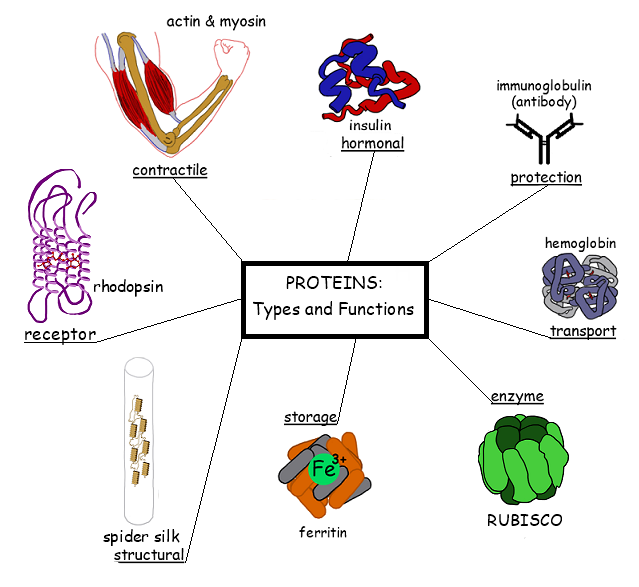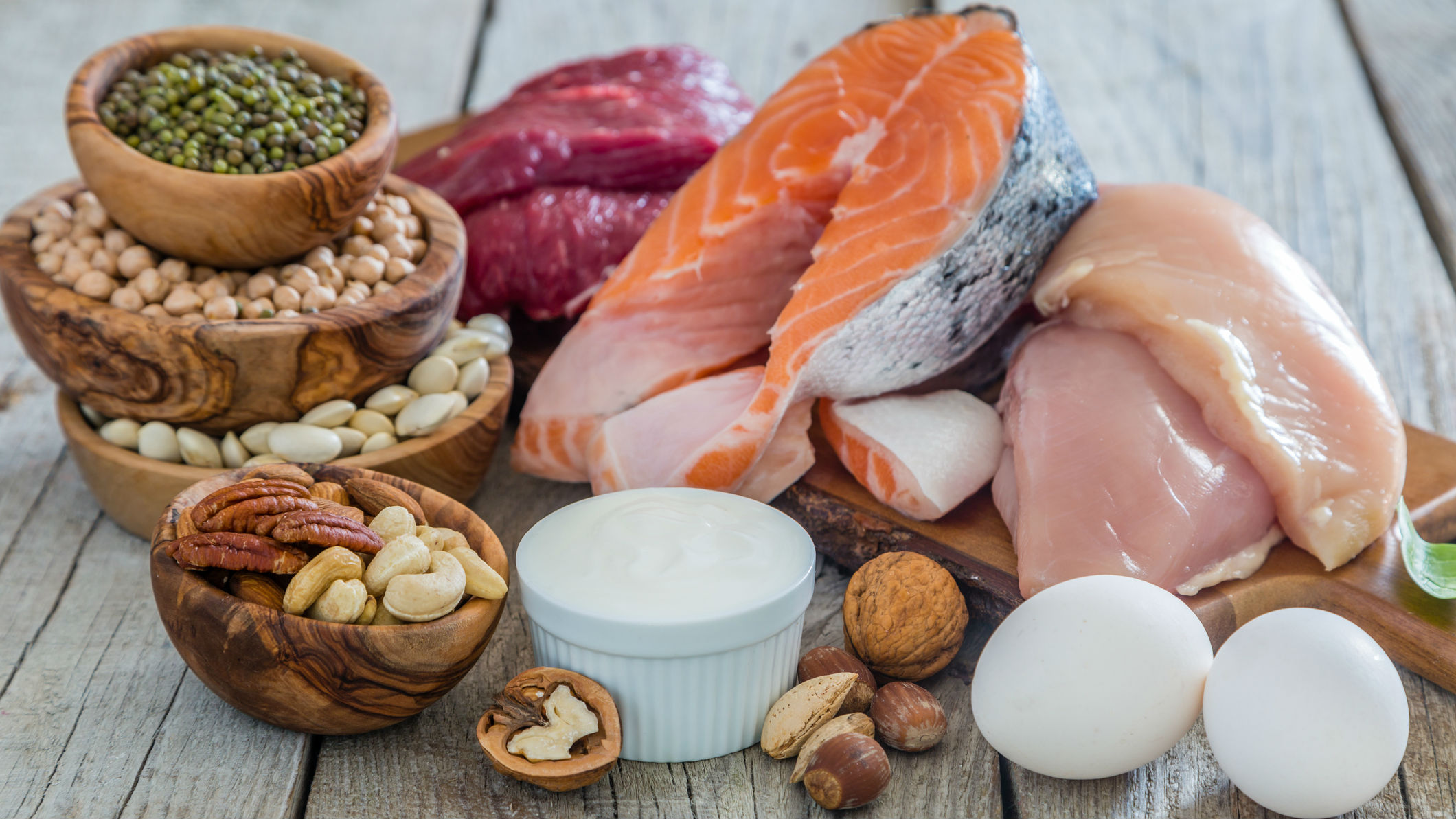Proteins Function In The Body – Everything You Need To Know About Them – Proteins are present in all living things. They perform many essential functions in the body. These include cell structure and growth, blood clotting, hormone production, and more. Some proteins can be found in foods such as dairy products, while others in body fluids such as saliva and blood.
Protein is essential for growth and development. We need it to stay healthy, and it helps us build muscles and tissues.

Many people are confused about what protein is. Are they good for you? Where do they come from? Do you even need them?
We’re will explore the basics of protein in the body and explain why it’s important to eat them regularly.
Functions of proteins
Proteins are macro-molecules composed of amino acids. Amino acids are the building blocks of proteins, forming chains of amino acids called polypeptides.
Proteins are a vital component of our bodies. They function in the cell, and help regulate and maintain the body’s functions.
Proteins are the basis for muscle, bone, cartilage, and blood. They’re also essential for the immune system, skin, and hair.
In this video, we’ll examine how proteins are made inside the cell. We’ll start by looking at DNA, which is a molecule that contains the instructions to make proteins.
Then we’ll look at the ribosome, a large molecular machine where proteins are made. Finally, we’ll look at some of the enzymes responsible for helping proteins fold into their final shape.
Types of proteins
Proteins are made up of amino acids, with nine protein types. They’re called proteins because they help to build, maintain, and repair tissue.
Each type of protein is vital to the body’s function, and it’s important to know the differences between them.
This video will teach you the difference between protein, casein, egg white, soy, and whey protein. Here are the details of this video.

Functions of proteins
Proteins are one of the most essential parts of your body. They’re responsible for everything from building muscles to maintaining organs.
Protein is also crucial for growth and development.
It’s important to understand that proteins comprise amino acids, and amino acids are the building blocks of protein.
Some amino acids are found naturally in food, while others must be sourced from food sources.
Let’s look at some of the most commonly used amino acids and their functions. [Music] L-Arginine This amino acid is a component of the human immune system.
It can be found in proteins like hemoglobin, which helps with oxygen transport. It’s also an important building block for collagen, a protein in connective tissue.
L-Arginine is also used to produce nitric oxide, essential to blood flow, and blood vessel growth.
Proteins in food
A protein is any compound that contains a chain of amino acids.
Proteins are found in many foods, such as meat, eggs, dairy, beans, and nuts.
There are nine essential amino acids, but we only need to focus on four because our body can’t make them themselves. They include:
Arginine
Cysteine
Isoleucine
Leucine

Methionine
Phenylalanine
Tyrosine
Valine
Lysine
The diet’s ratio of these amino acids determines the type of protein you’ll need to eat.
Protein is a key part of our daily nutrition. It’s essential for building and maintaining muscle and tissue, and it’s also required for energy.
Eating meat, fish, and dairy is the easiest way to get protein. You can eat eggs, milk, cheese, and yogurt if you don’t eat meat.
You can also get protein from other sources, such as nuts, beans, lentils, and seeds.
Frequently Asked Questions(FAQs)
Q: What does the word “protein” mean?
A: Protein is what our bodies use to grow and maintain bones, muscles, hair, and skin. It is found in animal products like meat, eggs, and dairy products.
Q: How can protein help improve the quality of life?
A: Proteins are the building blocks of our cells. They provide strength and structure. Protein helps repair tissues and maintain healthy bones and muscles.
Q: What are the major functions of proteins in the human body?
A: Proteins are structural components of cells and tissues, enzymes (the biological catalysts), hormones, antibodies, and blood-clotting factors.
Q: Why do proteins help us perform various tasks?
A: Proteins are responsible for the physical structure of our bodies. For example, they make up skin, hair, nails, bones, teeth, and internal organs.
Q: Why are proteins important for health and wellness?
A: Proteins are vital components of our bodies. They provide structure, energy, and the building blocks of cells. They are also an essential component of hormones, enzymes, and antibodies. Without proteins, we could not survive.
Q: What is a good protein source?
A: I like to include whey protein because it contains the amino acid L-glutamine. This amino acid is found in high concentrations in animal tissues. Whey is the main byproduct of milk.
Q: How should we store proteins?
A: When storing proteins, keep them in a refrigerator. Protein can be stored in the freezer to keep it longer. Once you open it, use it as soon as possible.
Myths About proteins function
1. Proteins are not digested by enzymes but are absorbed through the intestinal wall.
2. Protein is the primary substance that determines the weight of our body.
3. Proteins are just large molecules made up of amino acids.
4. They are essential and must be obtained from food.
5. If you eat protein, your body will store it for later use.
Conclusion
Proteins are one of the most important nutrients for the body. They’re responsible for the production of all the tissues and organs in the body.
They also act as catalysts for chemical reactions in the body.
Proteins are classified by their chemical properties into two major categories: soluble and insoluble.
Soluble proteins can be found in blood, bile, and other body fluids.
Insoluble proteins are mostly found in the bone, muscle, and skin.
As for the structure of proteins, they consist of a chain of amino acids linked together in a specific order.
The first amino acid of a protein is called the N-terminal amino acid. The last amino acid is called the C-terminal amino acid.
Amino acids comprise carbon, hydrogen, nitrogen, oxygen, and sometimes sulfur.




